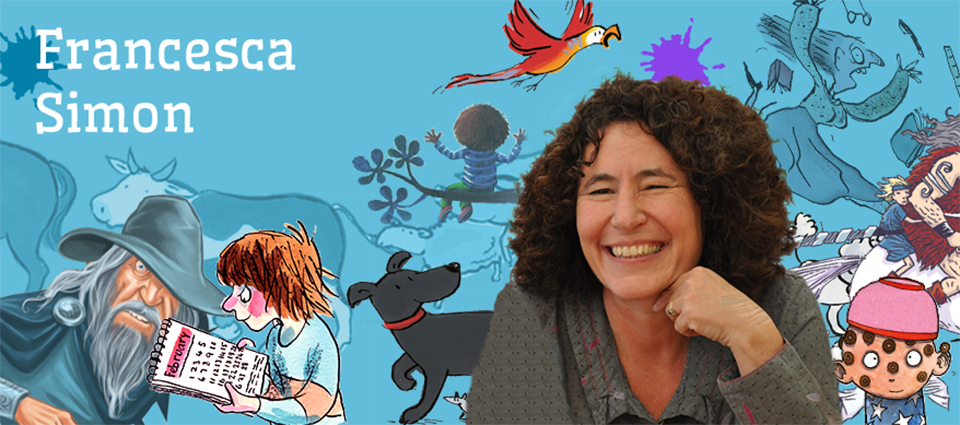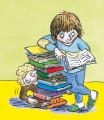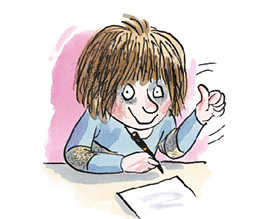Libraries are one of the cornerstones of a decent & humane country.
It’s National Libraries Day on Saturday 6th February 2016. Francesca has always been an enormous fan of libraries.
Here is Francesca’s love letter to libraries, originally published on the Scottish Book Trust website.
I was eight years old, and had just arrived in Malibu from Paris, where I’d lived for 18 months. I found re-adjusting to the American school system quite challenging, and I was considered exotic. I shook hands when introduced to other children, ate with a knife and fork, had elegant handwriting when everyone else was still printing with pencils and spoke two languages. Definitely a weirdo.
But one thing Webster Elementary School had was a wonderful library. A large, rectangular room, with tables and comfy chairs in the middle, a full time librarian, and thousands of books. The library was open at lunchtime, and it became a refuge for me. I was a regular volunteer, which meant I learnt the Dewey decimal system and shelved books, which was a heavenly job for someone who read two books a day, and meant I got first dibs on whatever looked good. I often read alphabetically, as my goal was to read every book on the shelves (I am not the only children’s author, I have subsequently discovered, who tried this.) I started with the biographies: Louisa May Alcott, Daniel Boone, Willa Cather, Davey Crockett, Sir Francis Drake, Thomas Edison, Lou Gehrig. This was in addition to novels, comics, anything that was printed, really.
What’s wonderful about libraries is being able to browse. The internet gives you what you ask: libraries open up worlds you didn’t even know to ask about. I was constantly discovering new authors, like Alexandre Dumas, and Frances Hodgson Burnett, or that new guy, Roald Dahl. (Notice the preponderance of writers at the start of the alphabet, by the way.)
Books were all-consuming to me. Once my fourth grade class went to the school library on a regular visit, and I was so engrossed in one of Edward Eager’s books that the bell rang, my class left, and I was oblivious for the next 45 minutes until the librarian tapped me on the shoulder and asked why I wasn’t in class. I looked up to discover that I was alone.
I was entirely dependent on my library for books, as my family wasn’t wealthy and could never have kept up with the amount I read. I am always mindful of the incredible service libraries provide, especially when I grew up, became a mother, and fell in love with a second library, the beautiful Carnegie-built North Library in Islington, where I went twice a week with my infant son, to check out ten picture books a week, attend story readings and playgroups, and meet other parents. When this library opened in 1906 (after tremendous opposition from local worthies who objected to servants and working class people wasting their time reading) thousands of people queued to get library cards and the police were called to contain the crowds.
Kate, the wonderful librarian, was the first person to hire me to do an “event” after my first book was published. My son, three years old, demonstrated his newly-acquired tap dancing skills on her desk. (Sorry about the scratches). Having a local library meant our house was always well-stocked with children’s books, and my son could choose wildly and wilfully because any “failures” could be returned.
When North library was threatened with closure in the 90’s, I stood outside for hours collecting protest letters to send to Islington Council. The range of users was astounding; everyone from a lady who’d been coming every week for 70 years to the unemployed arriving to use the computers, families with children, local workers, students, a multi-cultural microcosm of the borough. I can think of no other public resource which serves such a vast range of incomes and ages and backgrounds as a library.
After my golden memories of my own primary school library, I was shocked to discover that in the UK, school libraries aren’t a statutory requirement, and that many of the schools I visited just had a few bookshelves in a corridor. The message this gives children, that books aren’t valued, is devastating.
To me, having libraries for all is one of the cornerstones of a decent and humane country. When I watch libraries being closed and their contents scattered, I think about all those people queuing for their cards in 1906, and it breaks my heart that the barbarians are braying at the doors.


